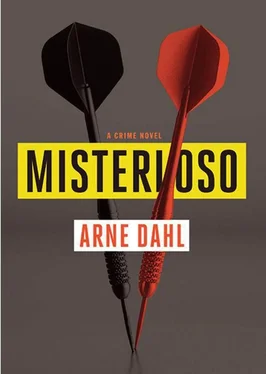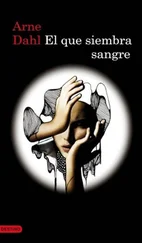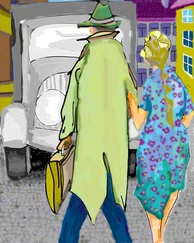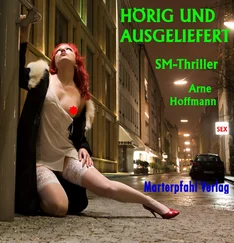Kerstin Holm dug around in her bag and took out the sketches of Igor and Igor.
Time for a decisive moment.
“Was it one of these men?” she asked.
Hjelm hardly recognized her voice. A tunnel voice , he thought.
“So that’s why I thought I recognized the drawing!” cried Lisbet Heed. “It was in the newspaper for days!”
Jonas Wrede froze. What an oversight on his part! Bye-bye to any chance of being transferred to the NCP.
“I knew I’d seen that face somewhere!” Lisbet went on. “But I didn’t even think about the man in the vault. I did everything I could to repress the whole thing. It was so horrible.”
“That’s him, all right.” Josephson pointed at the sketch of Valery Treplyov’s face. “Even though his face looked slightly different, of course.”
“Wrede?” said Holm, wickedly, holding up the drawing to the pale man, who nodded mutely. Bye-bye, inspector training course.
Hjelm, Holm, and Chavez gave each other meaningful looks. One important thing was still missing. Hjelm went to the back of the office, behind the wall that divided it from the public section of the bank.
He stopped in his tracks, then gestured for Holm and Chavez to join him.
For a long time they all looked at the dartboard hanging on the wall.
Wrede, Josephson, and Heed came over to stand next to them.
“Yes, it’s still there,” said Lisbet Heed. “I haven’t had the heart to take it down.”
Chavez asked the question: “What are the names of the two people who were let go on February fifteenth?”
“Mia Lindström,” said Heed.
“And Göran Andersson,” said Josephson.
Göran Andersson , thought the three officers.
“Was it Andersson who played darts?” asked Chavez.
“Yes,” said Lisbet Heed. “He was really good at it. He was the first to arrive every morning, and he always started the day with a… What was it called?”
“A five-oh-one,” said Josephson. “You start at five-oh-one and work your way down to zero.”
“What happened to Göran Andersson after he was fired?” asked Hjelm. “Did he stay here in town?”
“No,” said Lisbet, looking sad. “No, he left his girlfriend high and dry and vanished. I don’t think even Lena knows where he went.”
“Lena?”
“Lena Lundberg. They lived in a little house on the other side of Algotsmåla. Now she lives there alone. And she’s pregnant, the poor thing. Göran probably doesn’t even know that he’s going to be a father.”
“Do you remember whether Göran was injured sometime during the spring of ’91?”
“Yes.” Josephson had the personnel list filed in his mind. “He was out sick for a couple of months back then. It had something to do with his teeth-”
“I think he had to get a bridge, or something like that,” said Heed. “He mostly stayed indoors during that time. He didn’t want to talk about what had happened. But I saw him with a plaster cast on his arm too. I think it was a car accident.”
“One more thing,” said Hjelm. “Had Göran Andersson turned in his bank keys?”
“I don’t think he’d done that yet,” said bank president Albert Josephson, for the first time sounding a bit uncertain.
The three members of the A-Unit exchanged glances again. Things were falling into place. Loose threads were getting tied up.
Göran Andersson.
There wasn’t much more to add.
Hjelm turned to Wrede. “Do you have a sketch artist in Växjö?”
“A police sketch artist?” said Wrede, still looking pale. “There’s an artist here that we sometimes use, yes.”
“The three of you are going to help each other produce a drawing of the man from NCP who was down here and took over the case. Be as specific as you can. But first I want you to drive us over to see Lena Lundberg.”
It wasn’t far to the other side of Algotsmåla. But while sitting crowded together in a police cruiser, each of them put all the information together in their minds to form one big picture.
In the spring of 1991, the bank employee Göran Andersson from Algotsmåla had been beaten up in a restaurant in Växjö. It was a result of the Swedish banking world’s grotesque borrowing practices during the late eighties: those borrowing practices contributed not only to the bank crisis and to Sweden’s general economic crisis in the early nineties but also to scores of unnecessary personal bankruptcies. One of these bankruptcies was suffered by Anton Rudström, who at the sight of a banker went berserk and beat up the man. That man turned out to be Göran Andersson. Andersson apparently had already suspected that something was wrong with the bank’s policies, because after the beating he said that Rudström’s actions were justified. Yet he continued to work at the bank, maybe out of loyalty, or maybe because there simply wasn’t any other job available.
Later, as a direct result of these shady business dealings, he lost his job, and that’s when he snapped. Even though he’d been fired, he went to the bank just as he usually did, arriving before the normal opening time. He let himself in through the staff entrance, using the keys that he hadn’t yet relinquished, in order to rob the bank . That would be his revenge.
But for some unknown reason, he opened the bank doors as usual. That was strange, because the opening hours at the bank had been cut back, and because he’d been fired and was in the process of robbing the bank. Maybe it was the power of habit, or maybe he was distracted by a dart game that he’d started playing. Five-oh-one.
To top it all off, he was robbed just as he was planning his own robbery. A brutal Russian mafia man by the name of Valery Treplyov came into the bank in the middle of Andersson’s robbery and game of darts. The situation was grotesque. The world fell in on Andersson. The mafioso on the other side of the counter had the same gigantic build as the man who had beaten Göran up a couple of years earlier. Maybe he was holding the dart in his hand. Regardless, he threw it with infallible precision right into Valery Treplyov’s eye.
Now Andersson had killed a man; in self-defense, of course, but no matter what, he was standing there with a dead body in his old bank office, which he was in the process of robbing. He dragged the body inside the vault and locked it. He had appropriated Treplyov’s gun, perhaps in a state of confusion, and he’d emptied the man’s pockets. In addition to a lot of ammunition from the notorious factory in Kazakhstan, he also found a cassette tape.
He took the money, locked the bank doors, and left through the same entrance he’d come in, the back door, which was for employees only. In front of the bank was the truck containing Estonian vodka, ready to be delivered to other parts of the country. In the vehicle, the other Igor, Alexander Bryusov, waited for his partner to appear. After a while he might have gone over to the bank, only to find the doors locked and the place deserted. A mystery.
By then Göran Andersson had already driven off in his car, which he’d parked in back, in the employees’ lot. Maybe it was then that he popped the cassette into the car tape player and listened to the very jazz tune he’d heard a few years earlier while he was being beaten up: the inexplicable hand of coincidence. It was as if some higher power were behind it all. An unexpected element that was simply impossible to explain. That absurd Russian-who had come into the bank while Göran was making a radical break with everything he’d ever believed in-had supplied him with not only a weapon but also a motivation in the form of this music.
It was too much. He was transformed into the instrument of a larger power, seeking revenge against the banks, on behalf of the greater public, and at the same time against Anton Rudström, for himself personally. He decided to go after the bank’s board of directors from the year when Rudström had so hastily been granted a loan, the year 1990. That loan had resulted in the beating in Hackat & Malet in the spring of 1991. Both banks were branches of Sydbanken, but it could just as well have been any of Sweden’s larger banks. Göran Andersson presumably went to Stockholm on February 15, right after the incident at the bank in Algotsmåla. There he planned the first of three murders to be committed in less than a month. He started on his path as the avenging angel between March 29 and 30. After the first three murders, he retreated to his lair to plan the next series of killings. Which they were in the middle of right now. Göran Andersson was very determined, very accurate, very damaged, and very dangerous. He was beyond desperate.
Читать дальше











